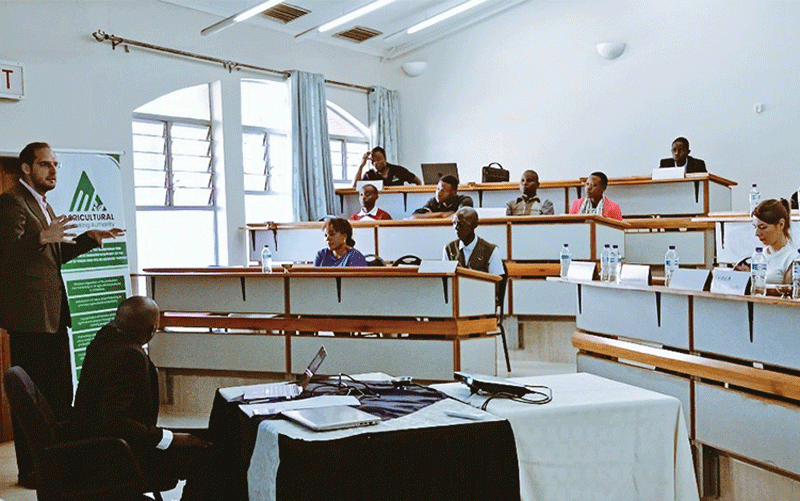
THE Agricultural Marketing Authority (AMA) has partnered a Polish company, Plantiqua Hemp, to help local cannabis farmers produce quality hemp that will fetch good prices on the international market.
AMA chief executive officer Clever Isaya told participants at an industrial hemp production farmer training programme in Harare on Monday that they have created market linkages for hemp farmers.
“We have partnered Plantiqua and they have agreed to buy hemp from our farmers because they already have their markets and this will help us increase production and productivity since they have factories and processing plants back home,” he said. “Through this partnership it means our farmers will produce quality hemp that will fetch good money on the international market.”
Hemp is a botanical class of cannabis sativa cultivars, grown specifically for industrial or medicinal use. There are two types of cannabis — medicinal and hemp.
In an effort to capitalise on the economic opportunities created by the widespread legalisation of the green plant in Western nations for medicinal and occasionally recreational uses, the Zimbabwean government legalised the farming of cannabis in 2018 for export and medical purposes.
This was done through Statutory Instrument 218 of 2020.
Since then, the nation has had more than 71 licensed cannabis producers, according to AMA statistics.
Zimbabwe Investment and Development Agency’s head of investment research, Raban Masuka recently said Zimbabwe was failing to conform with European Union (EU) requirements, a situation which put the country’s dream to develop a big cannabis industry in jeopardy.
- I don’t have depth: Bosso coach
- CCC urged to push for dialogue over reforms
- Japan, EU in lukewarm response to Zimbabwe’s lobby to lift ivory ban trade
- Walk the talk on reforms
Keep Reading
The EU presents significant market opportunities for local cannabis producers, but they are required to work under strict production frameworks, according to experts.
One of the EU’s requirements — good manufacturing practice certification — is the cornerstone for cannabis exportation to the EU.
But local firms have been struggling to secure licences.
Zimbabwe Industrial Hemp Trust founder and chief executive officer Zorodzai Maroveke last month revealed that cannabis returns could only be determined after a cost analysis because many licensees underestimated the expense of growing the green leaf.
“You can make money in cannabis, but you have to work with the end in mind. You have to have a price then you will be able to know ‘should I really buy a Honda Fit or Rolls Royce to be moving my product?’ The prices are fluctuating sometimes as some will tell you US$3 000 a kilogramme, while others will tell you US$500,” Maroveke told NewsDay Farming.
“The moment there is that disparity, these investors or players are not sure anymore and start asking themselves, ‘How far should I go with an investment if the price can be as low as US$500?’ And maybe, when they were doing their calculations, it was not making business sense.”
She stated that one of the main issues was that while everyone believed they would make millions, this was not the case because cannabis use was becoming legal in many nations.
“That means that there are going to be a few places where you can actually export your product too,” Maroveke continued.
According to AMA, accessibility of seed is a major hindrance for most of the registered growers.
An estimated area of 50 hectares is expected to be put under industrial hemp production for the 2022/23 season.
Currently, only two companies, African Medical Cannabis Biotech and Swiss Bioceuticals are extruding hemp oil in Zimbabwe.






